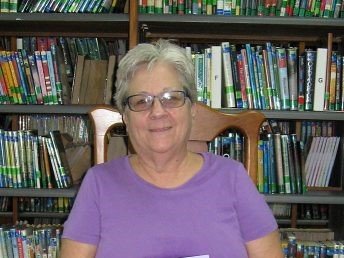The top prison debater

LOOK HOW far we have come. Tomorrow, the all-star prison debate team takes its final bow at City Hall in Port of Spain when inmates face prison officers in a debate, which is part of the City Week celebrations.
NGC Bocas Lit Fest collaborated with the Prison Service and the Wishing for Wings Foundation for this debate, and Bocas provided the topic, “Does every creed and race find an equal place in Trinidad and Tobago?” Inmates allowed officers first choice for the position, and much to the delight of the inmates, officers chose the negative construction.
Tomorrow I will undoubtedly be remembering Philbert Foster (now out of prison), who emerged against all odds to be the number one debater in the entire prison system in our debating team.
When he was nine years old Foster sat the Common Entrance Exam in Pleasantville Primary School and passed for Presentation College. Before entering secondary school, his life fell apart. Unable to get along with his stepfather, he ran away from home.
“When I came back, I was rejected by my stepfather and couldn’t stay,” says Foster.
So he began to live on the streets of San Fernando. “I couldn’t beg,” he says, so he took light construction work and was paid half the amount adults got paid.
“I learned to live on $5 a day. I had to use my intelligence to survive. I slept in abandoned houses and in the cemetery. To make money, I went to the market to tote goods for people. I bought a $1.50 butter bread, some channa, and a cinema ticket – not to see a film, but to sleep. It wasn’t easy sleeping on the street because there are a lot of predators out there.”
When he didn’t work, Foster went to the San Fernando library. “I never lost my love for reading and education,” he says. “I liked history. I was looking for answers, and I thought I could learn something from the past. Then I started to read biographies and autobiographies: Martin Luther King, Malcolm X, Margaret Thatcher, and that gave me strength.”
That life ended at the age of 17 when Foster was charged for murdering a vagrant (who was never identified) in the San Fernando Cemetery.
“It was not a crime I committed,” he says.
Foster was sentenced to the President’s pleasure and served a sentence from 1990 to 2002.Outside once again, he did maintenance work, painting and construction. Again, he couldn’t stay at home so he returned to the streets to live.
“On the streets, I saved $9,000,” he says. “I slept under a step. Nobody on the job site knew that. One night as I fell asleep, somebody stole everything from me – my money, my knapsack, my goods. That transformed my mind. I started to do stupid things, and I was charged with armed robbery. It’s something I regret.”
Back in prison, Foster says, “I took the opportunity to really think about everything I had been through and how I dealt with it. At some point in time, I realised I can’t depend on people to fix me. I have to fix it myself.”
In prison he discovered art. “I used my painting as therapy.” And with the debates, Foster says, “I wanted to show society that not everyone in prison is the way that you look at them. I didn’t get the opportunity to do academics out there, but I could do academic things in the debates. Debates taught me how to do research and take a stand.”
The debates reminded him of dreams he once had. “I wanted to be an astrophysicist. When I lived on the streets, I used to look up at the sky and wonder what was going on up there, and I wanted to pilot Concord aeroplanes.”
In prison, Foster says, “I set a goal to never step backwards; always step forwards. As I told my mom when she came to see a debate, ‘I come to a place where I have found peace with myself. I don’t tote any frustration.’ A long time ago, it was hard for me to speak about this. As much as I search for forgiveness, I can go forward with my life. There’s a lot of guys I have been around that were real notorious, but they aren’t here today, and I still am.”
Foster says, “At one time in my life I lost the ability to express a part of me. As the number one debater, I could see myself again. I could prove who I really am. It brought back happy memories when I held that school report and saw I came first in the class, and I felt proud. For the first time, after primary school, I was appreciated and recognised by others.”
Philbert Foster would like to go back to school and work in Nalis or in some job where he could do research. All he needs is a chance.
Next month, inter-station debates begin to form a new prison all-star team. I can’t wait to see who we will discover next.


Comments
"The top prison debater"